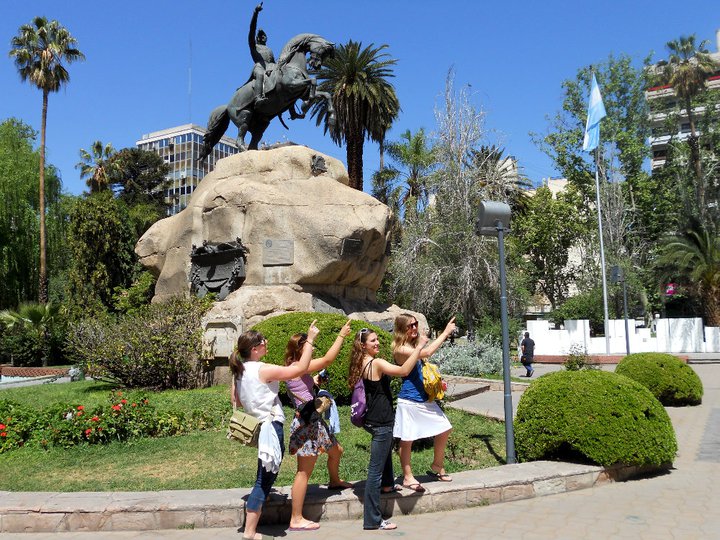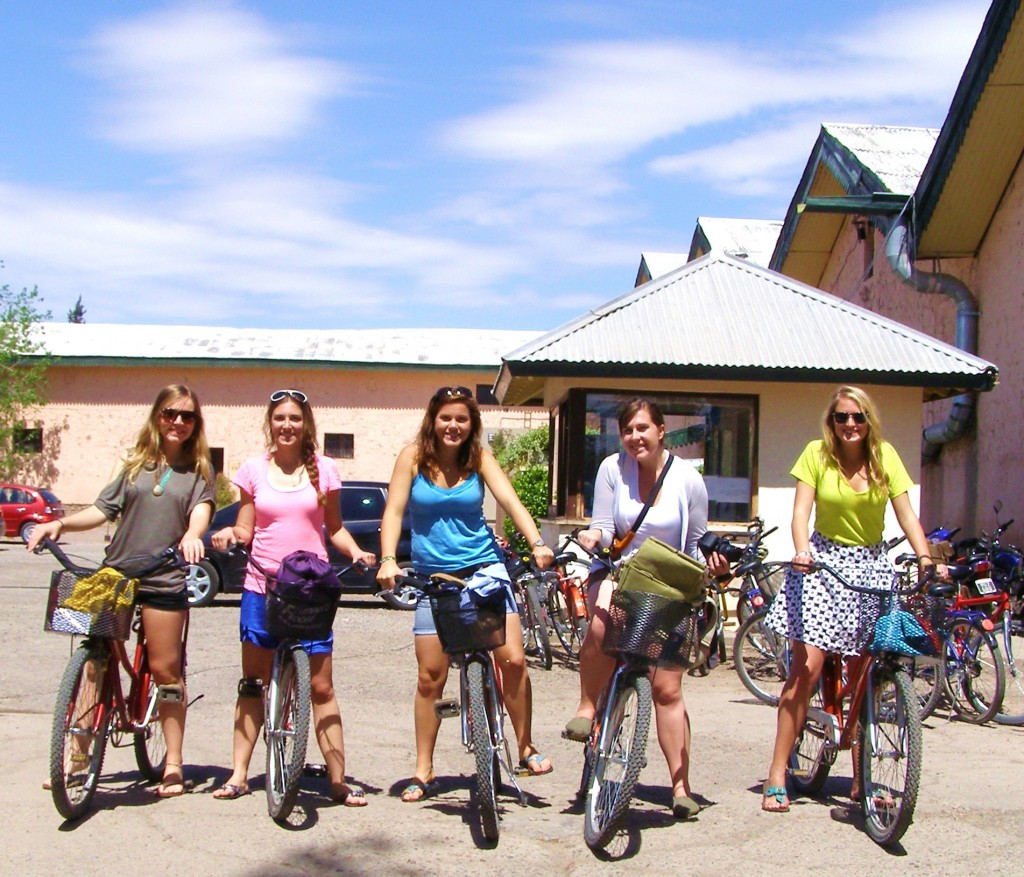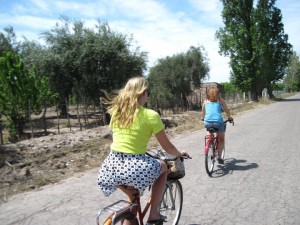
Mendoza, Argentina
The Argentinean border is just a few hours by bus over the Andes mountain range from where I’m studying in Viña del Mar, Chile. Nestled in the scenic foothills lies the city of Mendoza, nicknamed the “Land of Sun and Good Wine” (perhaps this slogan is mainly to entice tourists, but I discovered it to be true). Vineyards and warmer weather beckoned, and a group of friends and I headed over the mountains last weekend to visit this beautiful city. The lovely tree-lined streets, elegant cafes and various artisan vendors enticed us as we wandered through the streets after an overnight bus ride.
As I’d been advised by my host family and Chilean friends, the people of Argentina turned out to be quite different from Chileans. Not only is their Spanish much clearer and easier to understand, but they’re a lot more friendly with strangers and eager to use their English. For the first time, when conversing with people I was actually asked whether I preferred to speak in Spanish or English. My friends and I realized (what many Chileans had already admitted) that we had definitely chosen a tough country to learn Spanish in, but at this point we were sort of proud that Spanish actually seemed relatively “easy” to understand in another country. As a professor here once remarked in class, “If you can understand Spanish in Chile, you can understand it anywhere.”

Biking and Wining
The highlight of Argentina was definitely a bike and wine tour we did the second day of our trip in a sleepy little town called Coquimbito. We rented bicycles from a friendly man named Mr. Hugo, and then headed off down a picturesque dirt road. The best thing about the tour was that we were able to be very independent. Once we had our bikes we simply set off with a small map and a few vineyard brochures.
A museum of wine was our first stop and fairly interesting; they offered a good description of the wine production process and history of vineyards in Mendoza. Next on the list was a foodie’s dream. Olive oil factory, chocolate manufacturer, and producer of an insanely wide variety of other products for the tasting, we spent a couple hours indulging at the second venue. We were served locally produced olive oil, balsamic vinegar, olive and garlic tapenade, pepper spread, chocolate, absinthe, chocolate hazelnut liquor, and five kinds of delectable dulce de leche. It was like eating a ten-course lunch in perfectly small doses. We ended our tour at a great outdoor restaurant at yet another vineyard, after a healthy amount of biking down a beautiful road out of town with farms on either side.
To cap off a great trip, we made a couple new friends at our hostel, including a friendly young Argentinean teacher who generously shared the traditional drink of mate with us. We drank the steeped yerba mate tea leaves out of a silver straw in a mate calabash gourd. After seeing these gourds for sale all over the artisan marketplace, we appreciated learning the custom from an experienced mate drinker (and not just testing it out for ourselves as tourists). All in all, Argentina was a welcoming place and I hope someday I’ll have time to return and visit Buenos Aires and Iguassu Falls (among the many other beautiful cities and scenic destinations).

Miner Rescue
I can’t end this blog without a comment on the completion of the early rescue of the 33 miners in Northern Chile last night! The night the first miner was rescued we were celebrating my friend’s birthday at her house. After dinner, we happened to turn on the news just in time to see the second miner emerging from the rescue capsule. It was incredibly moving to sit with my friends here in Chile and watch the miners reuniting with their families.
Of course, everyone is elated that the miners are all alive and well, but understandably a substantial number of Chileans have negative opinions about this miracle story being turned into a scandal. Should the stories of the miner’s mistresses be put on the same level of newsworthiness as the rescued worker’s health and wellbeing? The miners have become media darlings, but I doubt whether they appreciate stories of their affairs plastered on the front pages of the world’s biggest newspapers. As reported in the New York Times, the miner Mario Sepúlveda stated, “I want to be treated as Mario Sepúlveda and I want to continue working. That’s all I want.” Sepúlveda’s wish is simple, but seems next to impossible at this point.
Headlines such as “Piñera announces changes to labor legislation and invites miners to visit La Moneda,” makes one wonder whether it takes a terrible accident for political progress to be made in labor laws. What’s more, there’s talk of Sebastián Piñera, a businessman and Chile’s first conservative president in 20 years, using the mining incident to bolster his own popularity. From what I can see, these topics are more scandalous than the stories of extramarital affairs that emerged while the miners remained trapped below ground.
